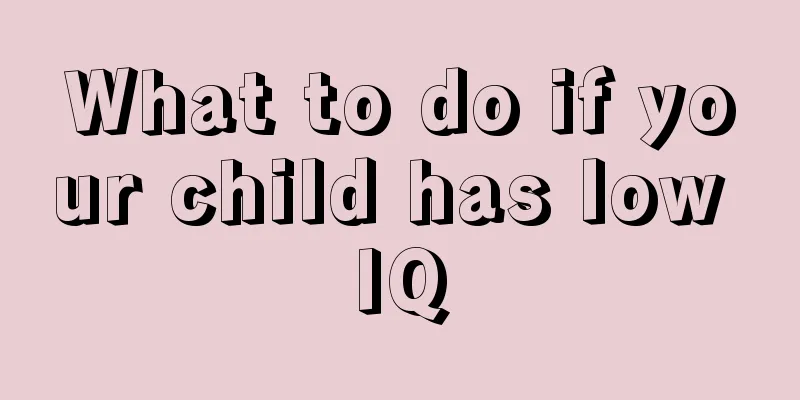How to supplement zinc deficiency in babies?

|
My baby is 3 years old and goes to kindergarten. Recently, the kindergarten teacher reported that the child does not like to eat, can not sit still on the chair, cannot concentrate in class, and often fights with classmates. After going to the hospital for a check-up, the doctor said that this is a sign of zinc deficiency. So how can we supplement the baby's zinc deficiency? As parents, we must pay attention to this issue, because children are in the growth stage. If the body lacks zinc, the child will often be active and delay growth. Therefore, after checking the trace elements that your child is lacking, you need to supplement them so as not to affect their healthy growth. How to supplement zinc deficiency in babies? Note: Excessive food processing will destroy zinc. Therefore, you must control the heat when cooking food to reduce the loss of zinc. When the content of iron, calcium, phosphorus, copper and other ingredients in food is too high, the absorption and utilization rate of zinc will be reduced. Food diversity should be ensured in daily diet, and efforts should be made to achieve a balanced diet. Drug supplementation: must be carried out under the guidance of a doctor Since there are many factors that affect zinc absorption, especially for children with anorexia, they often enter a vicious cycle and find it difficult to get the required zinc from food, so they must supplement with medication. Currently, zinc preparations include zinc sulfate, zinc gluconate, licorice zinc, yeast zinc, etc. Note: Be careful that the effective dose of zinc is very close to the toxic dose. Improper use can easily lead to overdose and induce a series of diseases such as iron deficiency, copper deficiency, and anemia. Which foods contain a lot of zinc: lean beef, pork, lamb, chicken hearts, fish, oysters, egg yolks, skimmed milk powder, wheat germ, sesame, walnuts, oysters, beans, peanuts, millet, radish How much zinc does a baby need every day: 3 mg/day for children under 6 months old; 5 mg/day for children between 6 and 12 months old; 10 mg/day for children between 1 and 13 years old; 15 mg/day for children over 13 years old If children have a normal diet and are not sick, their daily zinc intake from the diet can basically meet this standard. Zinc is a trace element, so supplementation must be moderate. If consumed too much, it can cause poisoning, gastrointestinal symptoms such as nausea, vomiting, abdominal pain, diarrhea, etc. It can also cause fever, anemia, growth retardation, joint bleeding, bone decomposition, kidney failure, cardiovascular and cerebrovascular diseases, etc. To sum up, this is about how to supplement babies' zinc and iron deficiencies. The important issues that parents and friends are concerned about have been resolved. Then you need to supplement trace elements according to the specific situation of your child, especially zinc, which is easily deficient in many children. Therefore, both dietary supplements and drug supplements are very important, and you can choose a method that suits your child. |
<<: What should babies eat if they are zinc deficient?
>>: Causes of congenital anemia in babies
Recommend
How to treat baby's prickly heat
Summer is the peak season for baby prickly heat, ...
Can teeth grow back if they fall out at the age of 15?
Everyone should know that each of us has a time t...
How your baby's vision develops
Nowadays, I believe that many people have some pr...
Why do babies yawn all the time?
After a baby is just born, many mothers generally...
What should I do if my baby has prickly heat in his hair?
The weather in summer is relatively hot, especial...
Treatment of tuberculosis in children
Tuberculosis in children makes parents particular...
What is the cause of blood in the urine of children?
If a child has blood in his urine, it is a seriou...
What to do if your child has tonsil suppuration
Children have relatively low resistance and immun...
What causes baby's palms to sweat?
Today's babies are the sweethearts of the fam...
At what age can children eat?
Children can usually eat at nine to ten months ol...
Rash on the child's face
If a rash appears on a person's face, it is t...
The baby repeatedly asks to go to the toilet before going to bed
Before going to bed, the baby will always repeate...
What to do if your child coughs, especially after sleeping
Children are more likely to cough when they have ...
What should I do if my child is fat?
With the improvement of people's living stand...
What is the reason for a baby girl's chest lump?
The body of a baby is in a normal development and...









